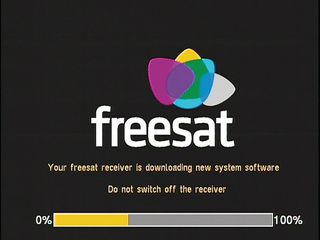
Rant mode on: DRM has always been a bane to both consumers and suppliers, and the sooner suppliers realise that, the better. We're specifically looking at Sky here.
With its attractive selection of television channels and fancy-pants set top boxes, Sky is almost single-handedly responsible for thrusting the next generation of television into the living rooms of the UK, and not always to the tech-literate.
In fact, Sky has been specifically targeting a more mature audience with its Parkie-endorsed tales of Sky+ being luddite-proof. But us non-luddites, looking at Sky's technology from a rather different angle, smell a rat.
You can't actually transfer your recorded files to any other device because they're encrypted; essentially they're copies of the incoming transmission that the set top box decodes with the help of your viewing card. Actually shifting a recording onto, say, a portable device would involve a long-winded process likely to involve a DVD recorder and several conversion steps – not exactly convenient.
We can't entirely blame Sky for this. Encrypted streams are, sadly, a necessity of subscription-based broadcasting, and a live conversion is out of the question with such little processing power. However, we can shake our fist at the DRM for denying us the simple pleasure of device-shifting.
As we've found while testing Humax's Foxsat HD Freesat box, such awkwardness is not restricted to digital recordings or even to subscription-based channels. There's no hard drive in the basic Foxsat-HD, just a stack of MPEG processing power and a swathe of relevant components.
But it doesn't avoid the spindly fingers of DRM: try to watch a 'restricted' HD broadcast over a component connection – a perfectly reasonable request, we think – and you'll be shooed away, forced to watch over HDMI or drop down to standard definition.
Get daily insight, inspiration and deals in your inbox
Get the hottest deals available in your inbox plus news, reviews, opinion, analysis and more from the TechRadar team.
This is the forward-thinking equivalent of a 'no recording' broadcast flag, technology that has been possible and indeed discussed for years, but never implemented. HDCP is coming into its own.
With that in mind, initial forays into the world of the Topfield TF5810PVR are quite refreshing. It's open, for a start – no encryption, no lock-outs and a section in the manual that clearly explains how to copy your recordings to your PC via USB. VLC happily plays them without conversion, and it's easy enough to remould them into other formats.
Converting files the other way to make them playable on the Toppy isn't quite as easy, though. DivX is especially difficult to transcode (a three stage process at its quickest) because the Toppy – and Freeview itself, for that matter – uses MPEG-2 encoding, and doesn't have the hardware on board to do the conversion itself. We'd probably be happier with a slightly pricier box that did both jobs with aplomb.
Most of the time – barring occasional inconsistencies – encrypted content like Setanta Sports (available after purchasing a viewing card and a separate USB CAM module) is recorded to the Topfield box unencrypted, allowing you to watch it or convert it without restriction.
Certain programming, according to reports, seems to be bypassing this feature, requiring the CAM to be plugged in to the box to play it back, or worse, rendering itself unplayable if the encryption code on the card happens to change between recording and watching. We weren't able to reproduce this, but don't doubt it's happening. Just sigh, slump back in your chair and resign yourself – it's only going to get worse from here.
Essentially these boxes are a first look into the future of television. The mildly restrictive functionality of the Humax Freesat box is just the tip of the iceberg, and as more HD services spring up, the landscape – and indeed the television viewing public – is likely to be segregated into high and standard definitions.
Similar stream restrictions will hit Freeview's HD services, and then the functionality of devices like the Toppy will be brought into further question. Right now it's not an issue – if that £300 box is going to give you everything you need for two, perhaps three years, then by all means go for it. But mark our words: the future looks more and more restrictive.
The closer we get to a completely HD environment, the further we're getting from the freedom of true personal recording. But by the time we're watching completely protected and uncopyable TV streams, the facility will be there to stream these shows, at our convenience, in HD.
The only thing we'll have lost is the ability to make a permanent record of them. The true consequence of all of this is that the age of the personal archivist is drawing to a close.
